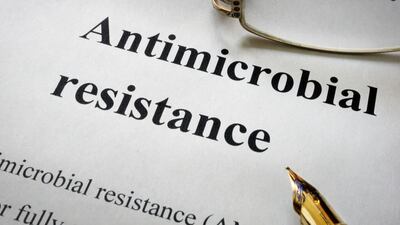HBW Insight is shining a spotlight on the work of regulatory affairs specialists operating in and supporting the consumer health and cosmetics industries. We are profiling this important role, hearing what a typical day involves and finding out what is top of mind for these individuals today. Look out for further installments in this series in HBW Insight over the coming weeks.
“Intelligence and vision” are essential ingredients for any regulatory affairs professionals worth their salt, according to the Association of the European Self-Care Industry’s Christelle Anquez-Traxler and Oliver Hartmann.
In the first of a new series profiling regulatory affairs specialists working in or supporting the consumer health and cosmetics industries, Anquez-Traxler and Hartmann – senior regulatory science & strategy lead, and regulatory & legal affairs director respectively at AESGP – describe a complex job of mediating between industry stakeholders and fast-moving regulatory developments, a job that is itself changing fast thanks to technology and a broadening out of the role of self-care in 21st century society.
“Every day is unique, and the work is very varied when you consider the number of topics a typical regulatory expert has to deal with and the different skills they have to apply every day,” they explain, in this exclusive Q&A.
A lack of harmonization of regulation across EU member states and proliferating rules related to sustainability and the EU Green Deal are two issues that are keeping Anquez-Traxler and Hartmann awake at night.
Staying on top of such wide-ranging issues means “remaining curious, open to change and innovation and keeping up to date,” they suggest, which “can also sometimes be a challenge, given the pace of digital and scientific evolution.”
What is a typical day in the life of a regulatory affairs specialist?
A typical day at AESGP in terms of regulatory affairs activities in the context of the consumer healthcare industry can be best described by referring to the most common tasks. These include staying up-to-date on legislative and regulatory developments, such as new legal requirements and regulatory guidelines issued by relevant EU institutions and agencies and assessing their impact on the various consumer healthcare products represented by AESGP, i.e. non-prescription medicines, self-care medical devices and food supplements, as well as considering the potential impact on the self-care sector as a whole and how best to mitigate it. This is why regulatory intelligence and political vision are essential to anticipate potential changes that could affect the sector in the long term and to develop strategic plans and solutions at a very early stage. The fact that AESGP oversees three different product categories is a real asset in this respect.
Similarly, the provision of regulatory and scientific advice to AESGP members is an essential component of day-to-day activities. This includes informing and explaining to members new and existing requirements, policies, regulatory procedures as well as the outcome of scientific assessments, while at the same time taking into account feedback from members on the impact of particularly new requirements and guidelines. This feedback will in turn be used to develop positions and responses on behalf of AESGP in consultations and feedback procedures, as well as to represent industry views in expert meetings with governments and other stakeholders. Finally, the regulatory function within the team is in constant contact with colleagues in public affairs, communications and legal functions, which makes the work very rich and fulfilling. In short, every day is unique, and the work is very varied when you consider the number of topics a typical regulatory expert has to deal with and the different skills they have to apply every day.
How has this role changed over time?
The integration of digital technologies, databases and platforms has become an integral part of the regulatory landscape facing regulatory affairs experts. As a result, regulatory affairs experts need to be IT and digitally literate. An example of this is the development of the comprehensive Eudamed database for medical devices and in-vitro diagnostics, which represents a key pillar of the corresponding legal frameworks. By integrating different electronic systems, it will serve as a platform for exchanging information and data on all medical devices available in the EU. In-depth knowledge of the functionalities and processes of the database modules is essential to advise members appropriately and represent industry positions effectively.
Another challenge is the ever-increasing requirements facing the self-care sector, as these come not only from product-specific legislation, but also, for example, from horizontal environmental or chemical legislation, and the intersections between these legislations can create a lot of uncertainties or ambiguities. Our sector is and remains fragmented and unharmonized, which in itself presents a challenge in helping companies navigate between EU requirements, national interpretations and local practices.
What is currently keeping you up at night?
Patient access to self-care products, wherever they live in Europe, is a major challenge: what is acceptable in one country may not be in the next, and we are convinced that the needs of patients and users when it comes to self-care are not always heard by authorities or facilitated by regulatory requirements.
Another challenge facing regulatory affairs professionals at European level is the continuous flow of horizontal policy and legislative initiatives that are not sector-specific and generally apply to all industries. This is particularly the case in the field of environment and sustainability or digital technologies. Given broadly worded provisions and references to future implementing legislation to detail further the specific requirements in such horizontal legislative texts, it often proves difficult to identify and clarify in advance the particular impact on the different consumer health products represented by AESGP, as well as to prepare well-defined regulatory strategies. At the same time, another challenge related to the influx of horizontal legislative initiatives is the risk of duplication of regulatory requirements, notably where sector-specific requirements set out in existing vertical legislation are not taken into account.
Certainly, climate change and its impact on health is also a cause for concern. In this respect, we believe that the self-care sector has a role to play and can make a significant contribution to a more sustainable future.
What is your company doing to deal with these challenges?
As an interdisciplinary profession, regulatory affairs at European level is in fact subject to constant change and development. It is therefore essential to continue professional development and, as such, attend regular training sessions or topic related workshops led by experts in the respective fields. However, training is not limited to broadening regulatory and scientific knowledge, but also covers the development of organizational, project management and communication skills, for example. Remaining curious, open to change and innovation and keeping up to date is an intrinsic part of the job, but it can also sometimes be a challenge, given the pace of digital and scientific evolution!




